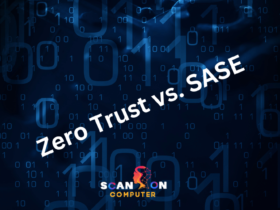Why Cyber Training Is Important For All Businesses? – Cyber attacks can damage any business financially, reputationally, and even financially – this is why cybersecurity training for all businesses is vitally important.
Security awareness training aims to inform employees about threats they might face, such as password security issues and phishing scams. Training sessions typically last only a short time and occur frequently for maximum retention of knowledge.
Certifications
An cybersecurity certification can give your resume an edge and set you apart from other job applicants, but choosing one that aligns with your career goals is crucial. For instance, if your focus lies in offensive operations rather than prevention-related work, offensive operations certification might be more suitable than prevention certifications.
Consider how long the program will take and whether there are prerequisites that must be fulfilled before taking the exam. Some certifications require verifiable university coursework, work experience or both prior to sitting the exam – you may find information regarding its qualifications on its website. Increasingly, bachelor’s and associate’s cybersecurity programs include certification preparation as part of their course loads.
The Certified Information Security Systems Protection Professional, or CISSP, certification is one of the best-known in its field. Intended for IT professionals managing enterprise-wide information security programs, this vendor-neutral credential offers topics including security architecture, design and implementation – making it valuable for entry-level and mid-level IT workers.
Other cybersecurity certifications specialize in specific forms of attacks or threat actors; the Certified Ethical Hacker certification can help prevent ransomware attacks – an increasingly prevalent cybercrime in Australia – by protecting you from infected computers that become infected by criminals who then demand payment in return for returning data to you.
Certified Network Defender offers training on how to defend company networks against cyberattacks and provide the skills and knowledge necessary for detection and responding to such attacks. This intermediate-level certification seeks to equip its recipients with all of these essential tools and knowhow for protecting networks effectively from attack. The exam lasts 165 minutes and includes 85 multiple-choice questions. GIAC Security Expert is an advanced-level cybersecurity certification designed for senior security engineers, SOC managers and analysts. However, unlike its two predecessors, this one requires previous work experience and extensive technical knowledge – making it the toughest credential to earn in the industry.
Degrees
If you are serious about pursuing a career in cybersecurity, earning an accredited degree will provide the ideal platform to get you going in your professional life. An accredited degree provides students with comprehensive knowledge in programming languages, computer operating systems and network security as well as courses covering subjects like risk management, ethical hacking and computer forensics.
No matter whether you opt for an online or on-campus bachelor’s degree, it is crucial to carefully consider its total cost. Tuition rates differ between schools. Furthermore, it is crucial that the program matches both your educational and career goals; perhaps you want one with specializations in areas like software development or forensic investigation?
Entry-level positions in cyber security require at minimum an associate degree; however, employers prefer applicants with bachelor’s degrees in computer engineering, computer science or information technology as an ideal applicant profile. Degree holders from other fields should expect additional training requirements before being hired by their employer.
Bachelor’s degrees in cybersecurity can lead to various roles, such as security engineer, analyst and IT manager. You could also pursue a master’s degree – usually taking three to seven years – which will prepare you for roles such as cybersecurity theory, machine learning or policymaking.
Many degree programs now provide their students with opportunities to obtain industry certifications alongside academic work. This can enhance your resume and help make you stand out in an increasingly competitive job market. Certifications can be earned via bootcamps, academic programs or independent study.
Remembering that most cybersecurity attacks occur due to human error is key for avoiding cybersecurity incidents. To effectively combat them, employees must be informed on cyber threats and their associated risks; an organizational culture shift must take place; senior leaders should support this initiative; ongoing training must also take place so as to prevent security breaches from taking place.
Work Experience
If you have experience working in IT and want to transition into cybersecurity, there are various programs available. Some require significant time commitment while others offer flexibility depending on individual schedules. It’s essential that you conduct adequate research in order to find out which programs suit you.
Starting in an entry-level role like security analyst is also an excellent way to gain hands-on experience and prepare you to take necessary certification exams – this may be your best choice if you don’t possess a bachelor’s degree in computer science or IT and it could lead to an exciting new career path in cyber security.
These jobs will teach you to analyze your company’s programs, applications, security systems and networks for potential vulnerabilities that leave them open to cyber attacks. Your responsibility will be communicating these weaknesses to leadership and employees within your company as well as working to strengthen security measures within. In addition, these roles provide invaluable training on how to respond to common threats such as malware, ransomware, hacking attempts or social engineering tactics that threaten business security.
Cybersecurity is an ever-evolving field, so you should expect to acquire new skills throughout your career. To stay abreast of emerging trends and keep abreast of industry news and best practices, read industry blogs such as Coding Dojo. In addition, network with fellow cybersecurity professionals at events both online and off – communities such as BSides, DEF CON, Meetup or any of their similar platforms provide networking opportunities for their members.
Bootcamps can be an excellent alternative for students unable to commit to college degrees and/or looking to accelerate their career in cyber. Bootcamps tend to be less costly than college and often provide practical curriculum tailored toward what will be encountered in real-life cybersecurity scenarios – for instance Flatiron School offers an accelerated cybersecurity engineering program which can be completed in as little as 15 weeks! Their programs cover Network and Systems Security, Python programming language and cryptography among many other topics – plus you’ll also be able to find free resources like videos and blogs online that can help explain these fundamental concepts!
Training
Cyber security training helps employees understand the threats facing their businesses and how they can protect themselves against attacks like phishing, social engineering and malware attacks carried out by criminals who want access to company data for personal gain. Such crimes cost businesses considerable sums in lost revenues; especially small ones with limited resources who need training in cybersecurity to stay protected against this potential catastrophe.
Employees should have the ability to recognize security breaches so they can report them immediately to their IT department and reduce the risk of losing valuable data, increasing productivity while potentially saving on legal fees and preserving reputation damage.
There are a variety of courses that can be taken to learn cybersecurity, some free while others cost money. Cybrary provides a great starting point for novices called Introduction to IT & Cybersecurity that covers the fundamentals in under an hour. Another choice is CompTIA certifications which offer internationally recognized credentials with several courses available on their website and an optional self-assessment test; or enroll in a boot camp to gain hands-on experience and real world cybersecurity knowledge.
Over the years, cybersecurity awareness training has undergone considerable transformation. Back in 2004, most programs simply sought to comply with regulatory requirements; today it serves more as a strategic tool to manage and mitigate risk – this transformation can be seen both in its content and format of training programs.
Password management, email security and safe browsing practices are among the most frequently covered subjects during security awareness training courses. Since these activities fall under social engineering umbrella and 98 percent of cyber attacks involve this form of attack, all members of an organization should participate.
Training should be engaging and relevant to employees’ daily work activities. A good training program typically uses a scenario-based approach, starting with a major event and then providing multiple scenarios from different vantage points – for instance showing someone’s personal account being compromised through a phishing attack.













